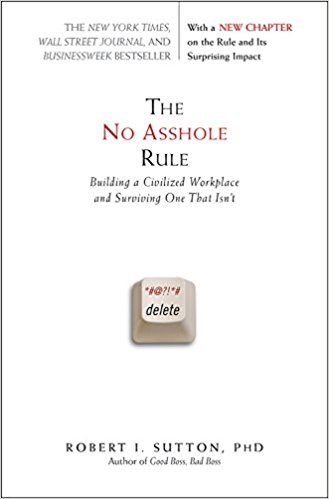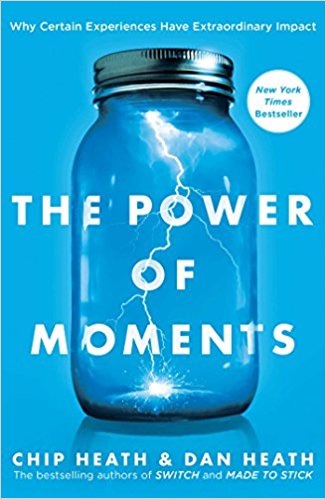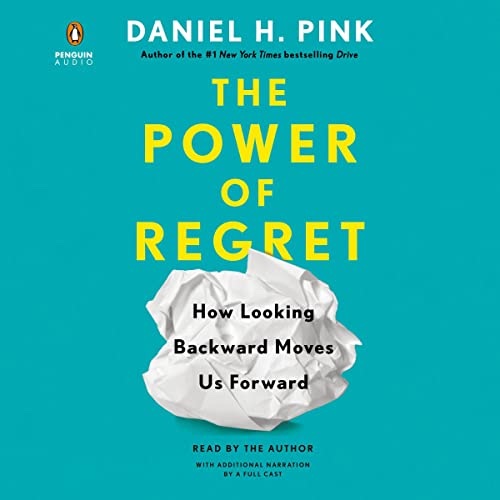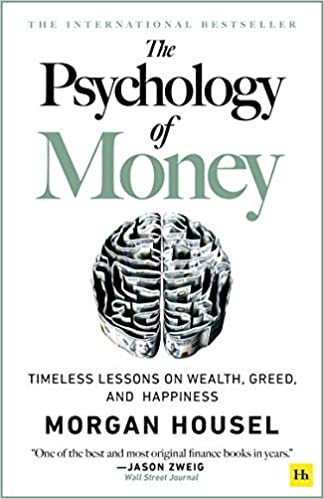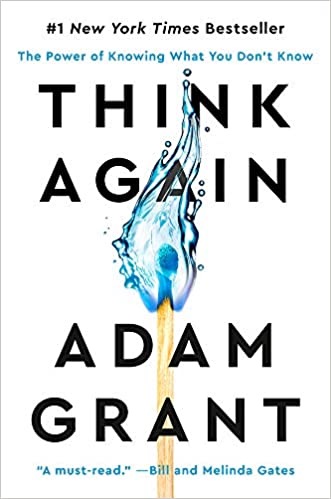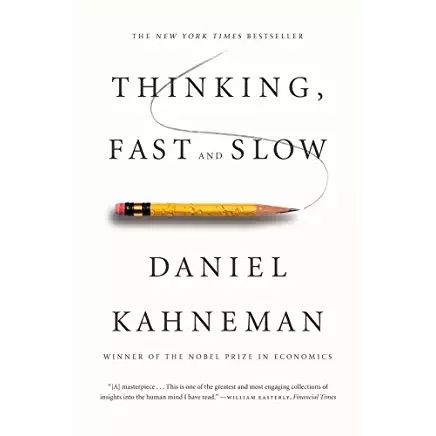Archive for the ‘Business Books’ Category
Monday, September 21st, 2015
The No Asshole Rule: Building a Civilized Workplace and Surviving One That Isn’t by Robert I. Sutton ©2007 & 2010 should help organizations of all kinds make their cultures less toxic and more productive. Click at the bottom of any page to get a copy so you can get started dealing with jerky behavior where you live and work.
Robert I. Sutton
- Robert is Professor of Management Science at the Stanford Engineering School and researcher in the field of evidence-based management. He is a popular speaker and the author of two other best sellers Good Boss, Bad Boss: How to Be The Best…And Learn From The Worst and Scaling Up Excellence: Getting to More without Settling for Less with Huggy Rao.
1. Asshole Defined
- With a title like this, it is essential to define what one means by the term asshole. Robert offers two tests we can use to spot this type of person. Test one: After talking to the person, do you feel oppressed, humiliated, de-energized, or belittled? Test two: Does this person aim venom at people who are less powerful rather than at people who are more powerful? He also gives us a list of actions that assholes use. They include personal insults, uninvited contact, threats and intimidation, sarcasm, two-faced attacks, dirty looks, and ignoring people. We are cautioned that there is a difference between a temporary asshole and a certified asshole, as nearly all of us act like one at times.
- Just because you want to avoid hiring assholes, neither do you want to hire spineless wimps. What is needed is for teams to engage in conflict over ideas in an atmosphere of mutual respect. Robert even suggests taking classes in constructive confrontation. When he studied this topic, Robert found that just about everyone he talked to volunteered stories about abuse in their work environment. While every work environment has a significant problem with this, some are worse. It seems that nurses may lead the league when it comes to taking abuse from doctors, along with patients, their families, fellow nurses, and supervisors. Men and women are victimized at about the same rate and the lion’s share of abuse is within gender. What you want are people who are consistently warm toward people who are unknown or of lower status.
Posted in Book Summaries, Business Books, Leadership Books | Comments Off on The No Asshole Rule: Building a Civilized Workplace and Surviving One That Isn’t by Robert I. Sutton
Monday, February 5th, 2018
The Power of Moments: Why Certain Experiences Have Extraordinary Impact by Chip and Dan Heath makes the case that we all experience moments that make a huge difference in our lives and that there are things we can do to make them happen. You need to be aware of moments in your life and look for ways to make them happen again for yourself and those you serve. This is a must-read for any leader.
1. Defining Moments
- We all have defining moments in our lives. This book has two goals. One is to examine defining moments and identify the traits they have in common. Two is to show how to create defining moments by making use of these traits. When we reflect on an experience, we do not average our feelings over time. Rather, we focus on the high and low spots, the peaks, and the pits, along with the beginnings and ends.
- One or more of the following elements are involved. 1. Elevation: Something happens to elevate the experience from those surrounding it. 2. Insight: Here is where you suddenly realize something about yourself or the world that makes a difference. 3. Pride: This is when you accomplish something special. 4. Connections: Defining messages are social. Special moments become more special when you share them with others.
2. Thinking in Moments
- There are three kinds of situations that stand out as moments in our lives. They are transitions, milestones, and pits. The goal is to mark transitions, commemorate milestones, and fill the pits. Here the Heath’s tell some stories of how employers can make transitions like the first day on the job special, how banks can help commemorate savings and mortgage milestones, and how service providers can fill pits as soon as they show up. At the end of this section and each section in the book they include a clinic, which demonstrates how the book’s ideas can be put to use.
Posted in Book Summaries, Business Books, Education Books, Leadership Books | Comments Off on The Power of Moments: Why Certain Experiences Have Extraordinary Impact by Chip and Dan Heath
Saturday, April 23rd, 2022
The Power of Regret: How Looking Backward Moves Us Forward by Daniel Pink deals with the power we can draw from dealing with our regrets in a thoughtful manner. Regrets deal with things you can control so you need to take action when possible to make things better and move on from things that can’t be fixed. Research shows that people who do this are healthier and happer. Thanks, Dan for this vital life lesson.
Part One. Regret Reclaimed – 1. The Life-Thwarting Nonsense of No Regrets
- Fron popular songs to literature to advice columns we hear over and over again about how successful people supposedly have no regrets. In this book, Pink shows not only that this is wrong-headed thinking, but when properly used, analysis of your regrets can serve to improve your life. We all have a portfolio of emotions and most of us try to have a bias in our lives for positive ones. That makes sense, but we also need to deal with negative emotions to help us avoid harm, be it physical or emotional. The purpose of this book is to show you how to use regret’s many strengths to make better decisions, perform better at work, and bring greater meaning to your life. Pink draws on his analysis of two massive surveys to accomplish this goal.
2. Why Regret is Human
- Regret is the unpleasant feeling associated with some action or inaction a person has taken which has led to a state of affairs that the person wishes were different. It is more understood as a process than a thing. As we mature, our brains naturally develop to experience regret. It is associated with the orbitofrontal cortex. People with lesions in this area typically do not experience regret. The same is true for people with Huntington’s and Parkinson’s disease. Reget is the most common negative emotion as things you regret are your own fault. They are things where you had control and constantly involve some comparison.
3. At Least’s and If Only’s
- These are two types of counterfactuals. When you think at least, you are thinking about how things could have been worse. When you think if only, you are thinking that an outcome could have been better if you had done something different. Most people engage in if only thinking much more than at least thinking. If only thinking degrades our feelings now, but it can improve our lives later. This is one way regret can help us do better tomorrow.
4. Why Regret Makes Us Better
- If you actively regret something you are not likely to do it again. A central finding is that regret can deepen persistence, which almost always elevates performance. Even thinking about other people’s regrets may confer a performance boost. Regret, however, does not always elevate performance. Lingering on regret for too long can have the opposite effect. Setbacks can supply fuel for future performance. Making mistakes and learning from them via regret is a path to growth.
- When it comes to things you regret it is key that you not wallow in them or dodge them altogether. Doing so will just make things worse. These feelings should result in thinking that results in future action that makes things better or avoids further pain. Think of this action as an evaluation that can be instructive. In short, if you make a mistake you need to ask yourself “what can I learn from it.” (Doug: This is a guiding principle for me.)
Posted in Book Summaries, Business Books, Education Books, Leadership Books | Comments Off on The Power of Regret: How Looking Backward Moves Us Forward by Daniel Pink
Wednesday, September 7th, 2011
The Progress Principle: Using Small Wins to Ignite Joy, Engagement, and Creativity at Work (©2011, Harvard Business Review Press: Cambridge, MA) by Teresa Amabile and Steven Kramer is based on an extensive study that tried to find out what it takes to be highly productive. What they found was that most of what matters is below the surface and not well understood by most of today’s managers. You can find a summary of their secrets here, and get the entire picture in this must have book. While it is not an education book, I find that the principles they have discovered apply well in school settings for use by teachers and administrators.
Tags: Harvard Business Review, Inner Work Life, Motivation, Progress Principle, Steven Kramer, Teresa Amabile
Posted in Book Summaries, Business Books, Leadership Books | Comments Off on The Progress Principle: Breakthrough Leadership Ideas
Sunday, November 8th, 2020
The Psychology of Money: Timeless Lessons on Wealth, Greed, and Happiness by Morgan Housel explains the psychology of spending and saving for anyone who has to deal with money and life. This is an excellent nontechnical study of this most important topic for high school students on up. If you want to acquire enough wealth to feel independent this book is for you. You can skip to chapter 20 to learn what Morgan and I do with our money.
Introduction
- We start with stories of a janitor who invested what he could in blue-chip stocks and died with an estate worth $8 million dollars and a successful businessman who went bankrupt by overspending on houses and wasting money. The premise of this book is that doing well with money has little to do with how smart you are and a lot to do with how you behave. It’s more about psychology and not so much about physics.
1. No One’s Crazy
- The decisions we make about money depend heavily on our experiences and the environment we grew up in. Although the first currency dates back to about 600 BCE, most of our current financial instruments only arrived after World War II. Prior to that time, most people worked until they died. Now we all expect to retire and have to save and invest for that day. Since modern instruments are so new, we aren’t crazy, we are just essentially newbies at it.
2. Luck & Risk
- Bill Gates attended a high school that had better computer access than most graduate schools. This allowed him to become an expert who wrote a program to do the school’s schedule among other things. Were it not for this unprecedented access he claims there would be no Microsoft. Meanwhile, his best friend who also became a computer wiz died in a mountaineering accident before he finished high school. The point here is that luck and risk are siblings. He shares other stories of people who took risks and made it big like Vanderbilt and Rockafellar who felt they had enough power to ignore some laws and indeed they did. Not all success is due to hard work and not all poverty is due to laziness. Keep this in mind when judging people. (Doug: Better yet, don’t judge people.) The world is too complex to allow 100% of your actions to dictate 100% of your outcomes.
3. Never Enough: When Rich People Do Crazy Things
- When you are young taking some modest financial risks makes sense as you have time to recover. At some point, you may need to decide that you have enough and scale back your risk. Morgan cites Bernie Madoff and Rajat Gupta as very successful investors who didn’t know when to say enough and ended up in prison after running a Ponzi scheme and engaging in insider trading. The ideas that the best games to play in a casino are none of them and that the Lotto is a tax on the poor are also instructive.
Posted in Book Summaries, Business Books, Education Books | Comments Off on The Psychology of Money by Morgan Housel
Tuesday, April 8th, 2014
The Sports Gene: Inside the Science of Extraordinary Athletic Performance by David Epstein (© 2013, Penguin Group: New York, NY) may not sound like a book for general educators and parents, but it is as it explores the messy relationship between biological endowments and the impact of training. You don’t need to be a sports fan to appreciate this look at modern genetic research that should apply to any kind of human accomplishment. Be sure to click at the bottom of any page to purchase this captivating book.
David Epstien
- David is an award winning senior editor for Sports Illustrated where he covers sports science, medicine, and Olympic sports. He was a track start at Columbia University and has a master’s degree in environmental science.
Innate or Will to Train
- The book opens by wondering how much of an athlete’s success is based on innate genetic composition (nature), and how much is a function of the will to train and time spent doing so (nurture). The first story deals with how a top flight women softball pitcher can routinely strike out the top men baseball hitters. How is it possible that girls can hit this stuff while top men can’t.
- In addition to action sports, David looks at how chess masters can reconstruct a chess game in progress after a quick look. This is where chunking theory came from. It was discovered that what the chess masters remember were clusters of pieces rather than each individual piece. Others also discovered that elite players of action sports need less time and less visual information to know what will happen in the future. Top tennis players, for example, can discern from the minuscule pre-serve shifts of an opponent’s torso whether a shot was going to their forehand or their backhand. No one is born with such anticipatory skills. Such skills are analogous to software, while genes are analogous to hardware.
Posted in Book Summaries, Business Books, Education Books, Leadership Books | Comments Off on The Sports Gene: Inside the Science of Extraordinary Athletic Performance by David Epstein
Sunday, July 8th, 2012
If you haven’t read The World Is Flat: A Brief History of the 21st Century Release 3.0 by Thomas L. Friedman (© 2007, Farrar, Strauss, & Giroux: New York, NY) it is time. If you have read it, it’s time to review the ten forces that have converged to flatten the world as far as business, commerce, and education are concerned. It’s also time to review their impact on our world and Friedman’s prescient advice. It will help you better understand our world and the changes that are still happening as a result of the flatteners. This book is just as valuable as it was when first published in 2005 as Friedman has updated it twice. Look for the book icon as you read to purchase the book from Amazon.
Tags: The World Is Flat, Thomas Friedman
Posted in Book Summaries, Business Books, Education Books, Leadership Books | Comments Off on The World Is Flat Release 3.0 Summary
Thursday, July 1st, 2021
Think Again: The Power of Knowing What You Don’t Know by Adam Grant offers advice about rethinking that all of us can use at work and beyond. The key is to think like a scientist. This means you have to actively try to disprove your own ideas as a way of testing their quality. This would make a great text for any leadership course and an outstanding read for anyone seeking self-improvement. Make sure that there is a copy in your professional development library.
Prologue
- This book is about the value of rethinking your assumptions, instincts, and habits while keeping an open mind. It starts with a story about wildfire fighters who when trapped neglected at first to drop their heavy gear as it was part of their identity and dropping it would signal failure. One man started a fire that in effect burned a hole through the fire and saved his life. This required rapid rethinking as this technique wasn’t taught in fire school. Due to the pandemic, we have also seen many leaders being slow to rethink their assumptions. This book is an invitation to let go of knowledge and opinions that are no longer serving you well. A hallmark of wisdom is knowing when to abandon some of your most treasured tools as you seek new solutions to old problems.
Part I. Individual Rethinking – Updating Our Own Views
1. A Preacher, a Prosecutor, a Politician, and a Scientist Walk into Your Mind
- The big idea here is to think like a scientist rather than a preacher, a prosecutor, or a politician. This requires that you revisit your beliefs to see if new evidence has made them obsolete. The worst bias is thinking that you aren’t biased. Be careful to avoid confirmation bias where you only look for facts that support your beliefs and desirability bias where you see what you want to see. Scientists are actively open-minded searching for reasons why they might be wrong. Your IQ may work against you as smart people recognize patterns faster, which can lead to seeing more stereotypes. If you are trying to promote a change, reinforce the things that will stay the same.
2. The Armchair Quarterback and the Imposter: Finding the Sweet Spot of Confidence
- Here we meet two opposing syndromes. The Armchair Quarterback Syndrome happens when confidence is greater than competence. The Imposter Syndrome happens when competence is greater than confidence. Arrogance is ignorance plus conviction. Humility allows you to absorb life’s experiences and convert them into knowledge and wisdom. A mix of confidence and humility gives us enough doubt to reexamine our old knowledge and confidence to pursue new insights. Most effective leaders score high in both confidence and humility.
- Adam believes that there are benefits associated with the Imposter Syndrome. It can motivate you to work harder. It can allow you to work smarter as you question old assumptions. Finally, it can make you a better learner as you realize that you might have something you need to learn. You are more likely to seek other opinions. It can keep you on your toes as you never think you know it all. You maintain doubts as you know you are partially blind and committed to improving your sight. Each answer raises new questions and your quest for knowledge is never finished. Arrogance, however, leaves you blind to your weaknesses.
3. The Joy of Being Wrong: THe Thrill of Not Believing Everything You Think
- Most of us are wrong more often than we like to admit. Rather than being upset when you find that you are wrong about something, it’s better to tell yourself that it means you are now less wrong than before. You can even be joyful if you realize that it means you have learned something. Adam recommends that you allow learning from being wrong to let you detach from your past and to also live so that your opinions are detached from your identity. This will make it easier when a core belief is challenged.
- A study of professional forecasters showed that the most important driver of success was how often they updated their beliefs. The best went through more rethinking cycles. They have the confident humility to doubt their judgment and the curiosity to discover new information and rethink their predictions. You should view your opinions as hunches and know that something isn’t true just because you believe it. Emotions can also get in the way. When you feel strongly about something you are less likely to change your mind when new facts present themselves. This is why so many respected predictors failed to predict Trump’s victory in 2016.
4. The Good Fight Club: The Psychology of Constructive Conflict
- There are two kinds of conflicts. There are relationship conflicts where people essentially don’t like each other, and there are task conflicts where people disagree about how to do something. The former get in the way of success, while the latter usually helps people to work together successfully. Task conflict brings out the diversity of thought. It can help us stay humble, surface doubts, and make us curious about what we might be missing. It can lead us to think again moving us closer to the truth without damaging our relationships. What matters to children is not how little their parents argue, but how respectfully they argue.
- It’s possible to disagree without being disagreeable. Disagreement is key when it comes to task conflict. The trick is not let task conflict turn into relationship conflict. As a leader, you want to promote the idea that disagreement is necessary for growth and success. It’s also key that leaders show they believe and care about the people with who they disagree. This can make disagreement seem like a sign of respect. Try to frame disputes as debates. This signals that you are receptive to considering dissenting opinions and changing your mind. Don’t fall into the trap that some leaders fall into by surrounding yourself with agreeable people. They shield themselves from task conflict by eliminating boat-rockers and listening to boot-lickers.
Posted in Book Summaries, Business Books, Education Books, Leadership Books | Comments Off on Think Again: The Power of Knowing What You Don’t Know by Adam Grant
Monday, June 2nd, 2014
Think Like a Freak by Steven D Levitt & Stephen J. Dubner (©2014, Harpur Collins: New York, NY) offers to retrain your brain. This book follows Freakonomics and Super Reakonomics that were both best sellers. This claims to be the most revolutionary book yet. It features captivating stories and unconventional analysis that should help you think more productively, creatively, and rationally. Click at the bottom of any page to purchase this very cool book.
Levitt and Dubner
- Steven D. Levitt is the William B. Ogden Distinguished Service Professor of Economics at the University of Chicago, where he directs the Becker Center on Chicago Price Theory. He is the 2003 John Bates Clark Medal winner, an award that recognizes the most outstanding economist in America under the age of 40. In 2006, he was named one of Time magazine’s 100 People Who Shape Our World. Levitt received his B.A. from Harvard University in 1989, his Ph.D. from M.I.T. in 1994, and has taught at the University of Chicago since 1997.
- Stephen J. Dubner is an award-winning author, journalist, and TV and radio personality. His solo books include Turbulent Souls and The Boy With Two Belly Buttons. His journalism has been published in The New York Times, The New Yorker, and Time./li>
Posted in Book Summaries, Business Books, Education Books, Leadership Books | Comments Off on Think Like a Freak by Levitt & Dubner
Friday, December 2nd, 2011
Thinking Fast and Slow: How the Brain Works by Noble Prize winner Daniel Kahneman takes us on a groundbreaking tour of the mind and explains the two systems that drive the way we think. The fast system is intuitive and emotional, The slow system is more deliberative and more logical. This highly anticipated book can help you better understand your own thinking and make better decisions.
Daniel Kahneman
- Daniel is the Eugene Higgins Professor of Psychology Emeritus at Princeton University and Professor of Psychology and Public Affairs Emeritus at Princeton’s Woodrow Wilson School of Public and International Affairs. He won the Nobel Prize in Economic Sciences in 2002 for his pioneering work with Amos Tversky (1937-1996) on decision making. The prize was awarded for his seminal work in psychology that challenged the rational model of judgment and decision-making. His ideas have had a profound impact on the fields of economics, medicine. and politics. He remains the only non-economist to win the Nobel in economics.
Introduction
- Daniel’s aim is to improve our ability to identify and understand errors of judgment and choice in others, and eventually ourselves. To do so he provides a richer and more precise language to discuss them. He uses the term System 1 to refer to fast thinking. This includes both variants of intuitive thought, the expert and the heuristic or rule of thumb system nonexperts use. It also includes the entirely automatic mental activities of perception and memory. System 1 turns out to be more influential than one’s experience suggests and is the secret author of many of the choices and judgments we make. System 2 is the slow, more deliberate, and more effortful system. It involves the choice to use it and concentration. System 2 is in charge of self-control. Together the form two characters that inhabit your mind.
Relationship between 1 and 2
- Daniel sites the Invisible Gorilla experiment (Check Dr. Doug’s Book Summaries for a summary of the book by Chabris and Simmons http://bit.ly/supqh7) as an example of how we can be blind to the obvious and blind to our blindness when we miss obvious things while engaged in deep System 2 thinking. System 2 is too slow and inefficient to substitute for System 1. This makes it hard to avoid mistakes but easier to stop the mistakes of others. Errors of intuitive thought are often difficult to prevent and biases are difficult to avoid.
- Both systems are active whenever we are awake. System 1 runs automatically, which means we can’t turn it off, while System 2 is normally in a comfortable low-effort mode. When System 1 runs into difficulty, it calls on System 2. System 2 is also activated when events violate the model of the world System 1 maintains.
When System 1 Has the Upper Hand
- Chapter 2 describes an experiment you can do that shows how your pupils dilate as you engage in demanding System 2 activity.
- In chapter 3 we find that System 1 is more influential on behavior when System 2 is busy. You are more likely to give in to temptation. A few drinks or a sleepless night will also impact self-control. Physical and emotional effort also tilt the control towards System 1. Fatigue and hunger cut into System 2’s effectiveness. (Dr. Doug: Would it help to let students take in sugar during a test?) Studies show that self-control and intelligence are correlated.
Tags: Daniel Kahneman, Thinking Fast and Slow
Posted in Book Summaries, Business Books, Education Books, Leadership Books | Comments Off on Thinking Fast and Slow How Your Brain Thinks
